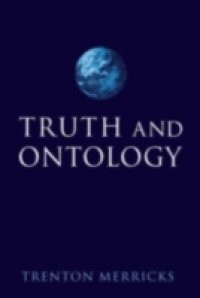That there are no white ravens is true because there are no white ravens. And so there is a sense in which that truth 'depends on the world'. But this sort of dependence is trivial. After all, it does not imply that there is anything that is that truth's 'truthmaker'. Nor does it imply that something exists to which that truth corresponds. Nor does it imply that there are properties whose exemplification grounds that truth. Trenton Merricks explores whether and how truth depends substantively on the world or on things or on being. And he takes a careful look at philosophical debates concerning, among other things, modality, time, and dispositions. He looks at these debates because any account of truth's substantive dependence on being has implications for them. And these debates likewise have implications for how and whether truth depends on being. Along the way, Merricks makes a number of new points about each ofthese debates that are of independent interest, of interest apart from the question of truth's dependence on being. Truth and Ontology concludes that some truths do not depend on being in any substantive way at all. One result of this conclusion is that it is a mistake to oppose a philosophical theory merely because it violates truth's alleged substantive dependence on being. Another result is that the correspondence theory of truth is false and, more generally, that truth itself is not a relation of any sort between truth-bearers and that which 'makes them true'.

